Headlines
Nigeria dazzles Dominguez, IMO scribe, with practical demonstration of deep blue assets capabilities.
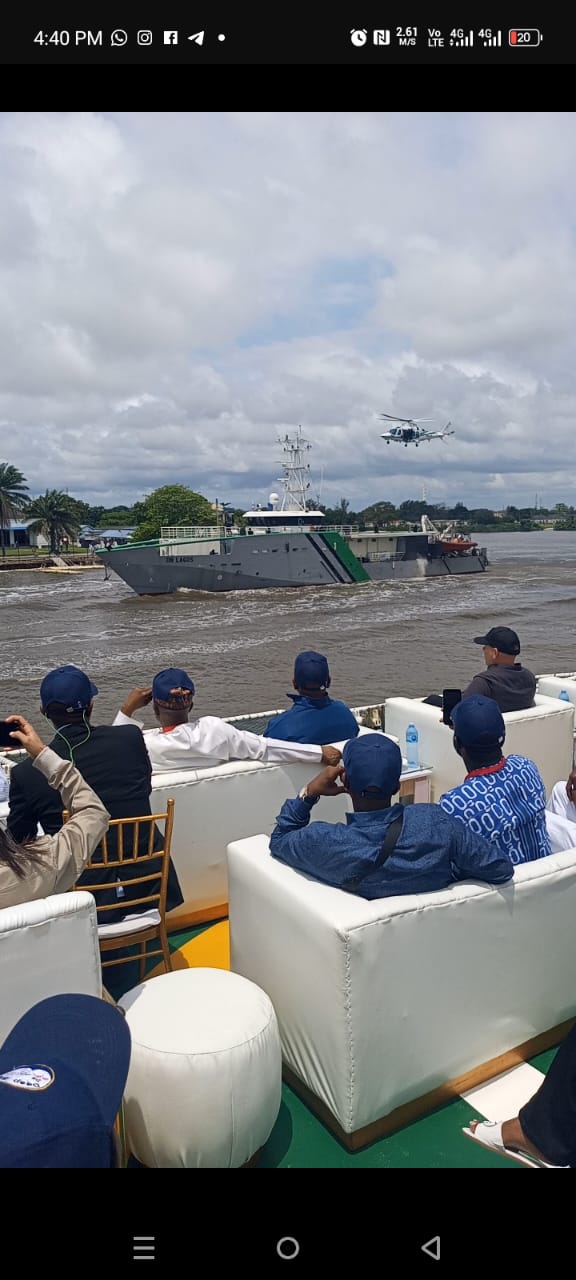
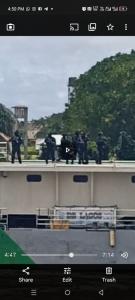
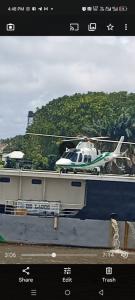
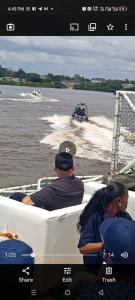
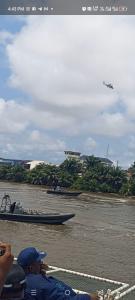

The Project has three categories of platforms to tackle maritime security on land, sea, and air.
The land assets include the Command, Control, Communication, Computer, and Intelligence Centre (C4i) for intelligence gathering and data collection; 16 armoured vehicles for coastal patrol; and 600 specially trained troops for interdiction, known as Maritime Security Unit.
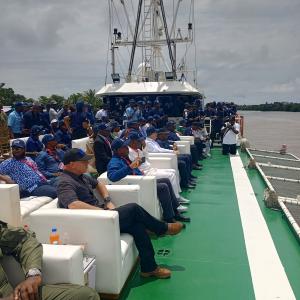
The sea assets include two Special Mission Vessels and 17 Fast Interceptor Boats. The air assets comprise two Special Mission Aircraft for surveillance of the country’s Exclusive Economic Zone (EEZ); three Special Mission Helicopters for search and rescue operations; and four Unmanned Aerial Vehicles.
The Deep Blue Project is the first integrated maritime security strategy in West and Central Africa with the aim of tackling the incidences of piracy, sea robbery, and other crimes at sea.
Headlines
NIWA partners ICPC to strengthen internal transparency in its operations

Headlines
Navy appoints new Maritime Guard Commander for NIMASA
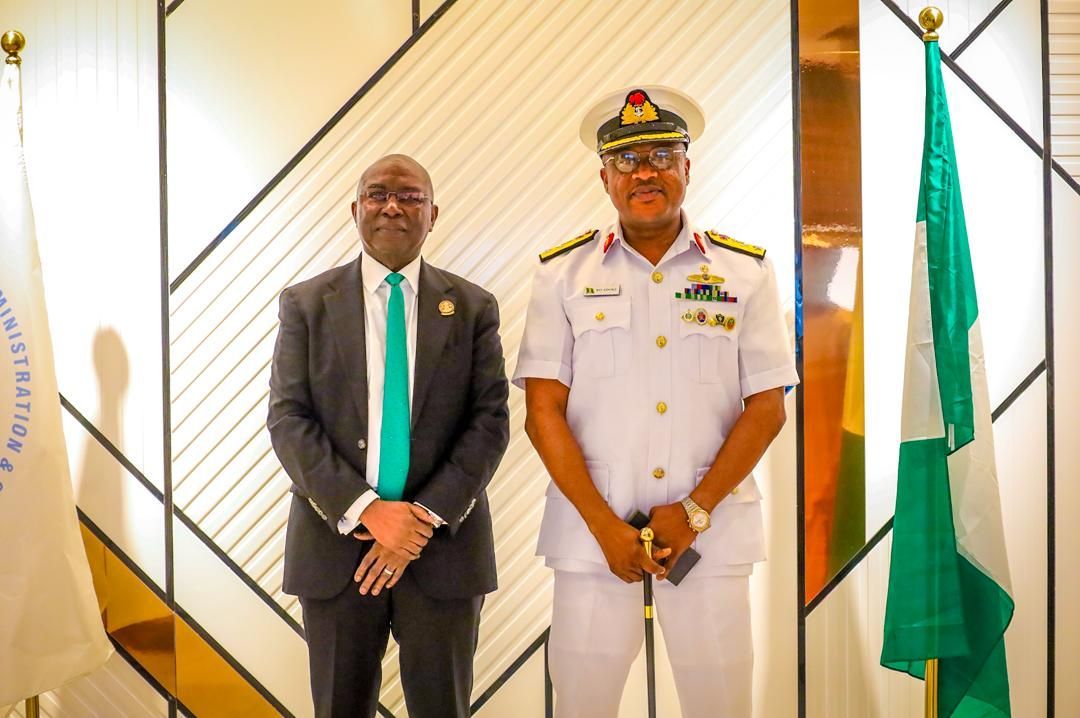
Commodore Adoki, a principal Warfare Officer specializing in communication and intelligence, brings onboard 25 years experience in the Nigerian Navy covering training, staff and operations.
Welcoming the new MGC Commander to the Agency, the Director General, Dr Dayo Mobereola, expressed confidence in Adoki’s addition to the team, emphasising that it will further strengthen the nation’s maritime security architecture given his vast experience in the industry.
The Maritime Guard Command domiciled in NIMASA was established as part of the resolutions of the Memorandum of Understanding (MoU) with the Nigerian Navy to assist NIMASA strengthen operational efficiency in Nigeria’s territorial waters, especially through enforcement of security, safety and other maritime regulations.
Customs
Customs collects N1.585 trillion from 51 compliant traders under AEO programme
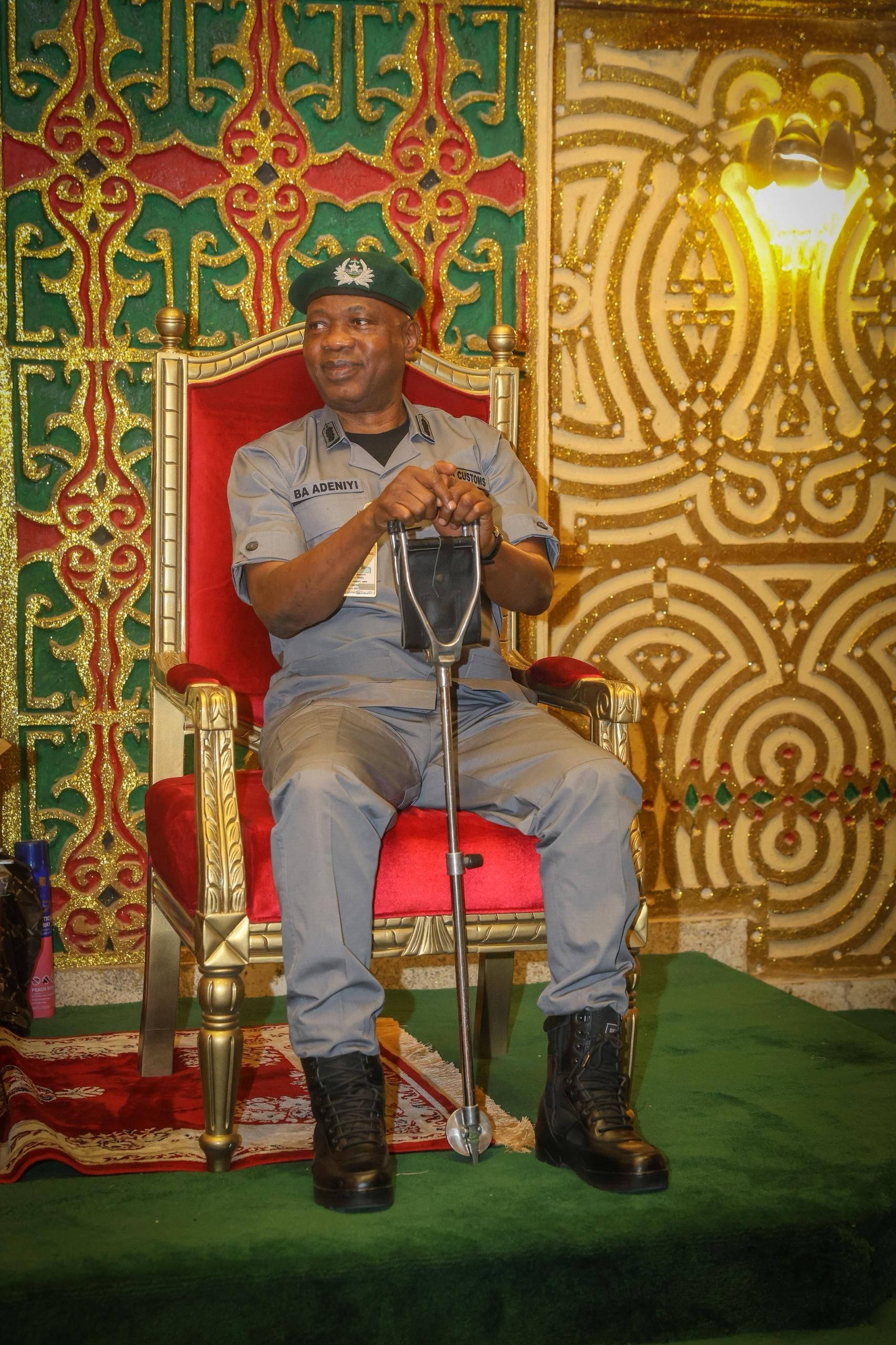
-

 Headlines3 months ago
Headlines3 months agoEx-NIWA boss, Oyebamiji, emerges most media-friendly CEO in maritime industry
-
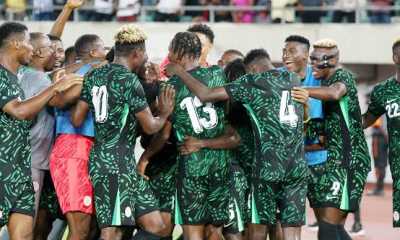
 Headlines3 days ago
Headlines3 days agoFIFA sends Nigeria’s Super Eagles to 2026 World Cup, awards boardroom scoreline of 3 goals to nil against DR Congo
-
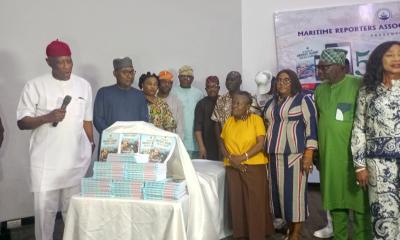
 Headlines3 months ago
Headlines3 months agoMARAN pulls industry’s stakeholders to unveil its iconic book on Maritime industry.
-
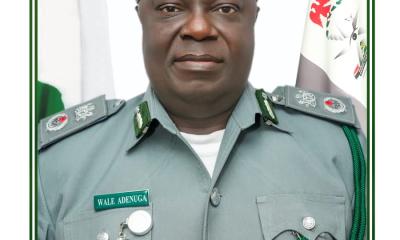
 Customs3 months ago
Customs3 months agoHow Comptroller Adenuga is raising revenue profile of Seme command, facilitating regional trade.
-
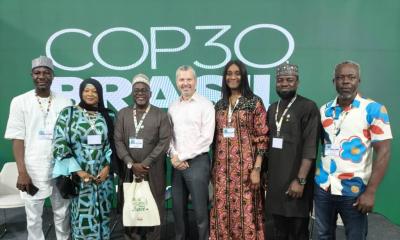
 Headlines3 months ago
Headlines3 months agoNigeria showcases readiness for compliance with IMO decarbonization policy at Brazil conference
-
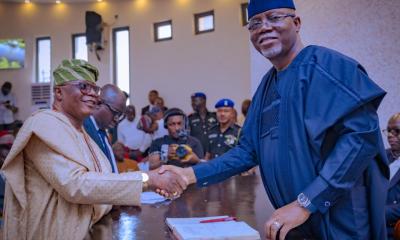
 Headlines3 months ago
Headlines3 months agoOndo govt inaugurates former NIMASA Director, Olu Aladenusi, as Special Aide on Marine and Blue Economy

